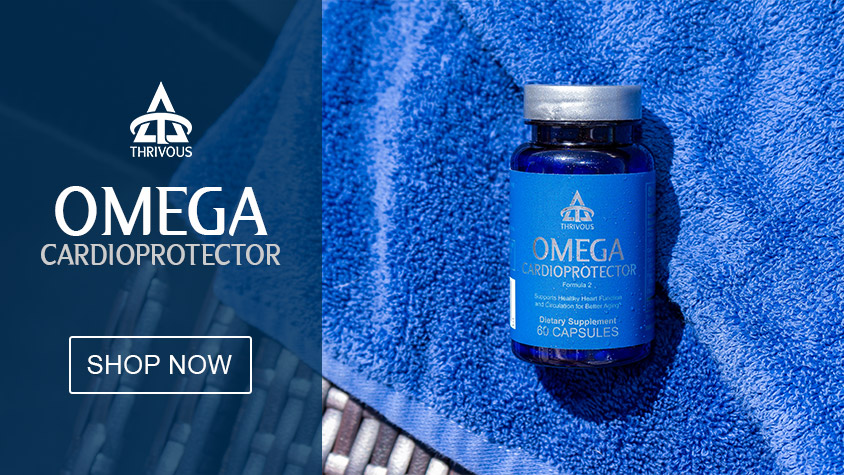This Supplement Enhances Strength

Maintaining muscle mass and strength is important for physical performance and overall health. Resistance training is a well-established strategy for improving muscle mass and strength. The intake of dietary protein, especially essential amino acids, is commonly recommended to enhance the effects of resistance training. Recently, Omega 3 fatty acids, specifically eicosapentaenoic acid (EPA) and docosahexaenoic acid (DHA), were studied for their role in muscle health.
Studies have shown that incorporating Omega 3 into muscle cells can enhance the signaling proteins involved in muscle growth. Omega 3 has been found to increase muscle protein synthesis, leading to muscle growth. Omega 3 supplementation has also been shown to enhance the effects of protein intake and resistance training on muscle growth.
Omega 3 may influence muscle outcomes through various mechanisms, such as muscle fiber type transition, improved insulin signaling, and modulation of inflammation. However, it has been unclear if Omega 3 supplementation affects muscle hypertrophy, strength, and fat reduction during resistance training.
Some studies in this area have had methodological flaws. And there has been a need for more research to determine the effects of Omega 3 supplementation on muscle outcomes. A new study investigated the effects of Omega 3 alongside resistance training on body composition and strength. The hypothesis was that Omega 3 would lead to greater improvements in muscle mass, strength, and fat reduction compared to a placebo.
STUDY: The effect of fish oil supplementation on resistance training-induced adaptations
Study Design
The study aimed to investigate the effects of Omega 3 on body composition and strength in young adults who were participating in a 10-week resistance training program. The researchers used a randomized design, which means that participants were randomly assigned to either the Omega 3 supplement group or the placebo group.
The study included 28 participants, both male and female, who were recruited from the local area and university population. They had to meet specific criteria, such as being between 18 and 40 years old, free from certain disorders and chronic diseases, and having a certain level of physical training and familiarity with specific exercises.
The participants in the Omega 3 group received a daily dose of fish oil supplement, while the participants in the placebo group received a similar-looking placebo. The supplements were distributed every two weeks to encourage compliance. The researchers confirmed adherence to the supplement by verbal confirmation and visually inspecting the supplement bottles.
The resistance training program consisted of supervised and unsupervised sessions conducted three times a week over a 10-week period. The participants performed a variety of exercises targeting different muscle groups, such as squats, leg presses, bench presses, and shoulder presses. The training loads were adjusted based on each participant's ability and were progressively increased throughout the program.
Before and after the intervention, various measurements were taken. Body composition, including total body mass, body fat percentage, and lean body mass, was assessed using dual-energy x-ray absorptiometry (DXA). Strength was evaluated by determining the participants' one-repetition maximum for the back squat and bench press exercises. Volume load, which is a measure of the total work performed during training, was also recorded.
In addition to the physical measurements, the participants were asked to maintain dietary records to monitor their food intake throughout the study. The researchers also collected blood samples using a dried blood spot method to assess compliance and measure fatty acid levels.
Statistical analyses were conducted to analyze the data and determine if there were any significant differences between the fish oil group and the placebo group in terms of body composition, strength, and other variables.
Study Results
Of the 28 people who took part in the study, 21 completed it. The group that took the Omega 3 supplements had higher levels of Omega 3 in their blood, while the group that took the placebo did not show any changes. Both groups increased the amount of weight they lifted during the 10 weeks.
When the researchers looked at body composition, there were no differences between the groups in terms of muscle mass. But the group that took the Omega 3 supplements had slightly less body fat. In terms of strength, the group that took the Omega 3 supplements had bigger improvements in their bench press and squat exercises compared to the group that took the placebo.
Overall, the study suggests that taking Omega 3 supplements during resistance training can help improve muscle strength, especially in the bench press and squat exercises. It did not have a big effect on muscle size or body fat. More research is needed to understand why the supplements helped with strength and how they affect the muscles.
Thrivous Omega
Thrivous develops Omega Cardioprotector to enhance heart function and circulation for better aging. Each serving of Omega provides a clinical dose of Omega 3 Lysine Complex, which is 5 times more bioavailable than common fish oil. As indicated by this study, Thrivous Omega may enhance strength when combined with resistance training. Get yours today in the online Thrivous store.
More Articles
Don't fall behind! Thrivous monitors new human studies of nootropic and geroprotector supplements, so you can make the best decisions based on the latest science. Supplement Science Updates are part of the free Thrivous newsletter. Subscribe now to receive email about human enhancement, nootropics, and geroprotectors, as well as company news and deals.
Read more articles at Thrivous, the human enhancement company. You can browse recent articles in Thrivous Views. See other Supplement Science Update articles. Or check out an article below.
-
This Supplement Enhances Heart and Brain Function
There is evidence that shows consuming blueberries, specifically the anthocyanin found in them, can lead to positive changes in both ...
-
This Supplement Enhances Sprint Performance
Caffeine is commonly used by athletes to enhance their performance in sports. It has been found in the urine of ...



